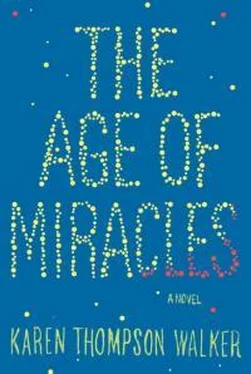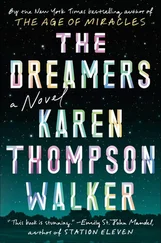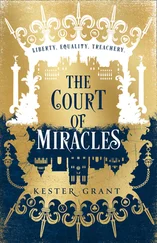“Human activity has done a lot of damage to this planet,” said Mr. Jensen as we continued to work on our sundials. “Humans are responsible for global warming and the thinning of the ozone layer, and for the extinction of thousands of plant and animal species. But it’s too early to say yet if we’ve caused this change, too.”
Before the end of the period, Mr. Jensen updated our solar system wall, where outer space was neatly represented by six yards of black butcher paper and eight butcher-paper planets. There was also a sun on our map and a tinfoil moon. Scattered in the corners were rainbow-colored pushpins that stood in for all the planets we had not yet discovered. There were supposed to be thousands of them out there. Millions, maybe. It still astounds me, how little we knew about the universe.
On the sign above the Earth, Mr. Jensen replaced 24 Hours with 25:37 , but he wrote the new figure on a Post-it note so we could update it if we needed to.
Classrooms were half empty all day or, depending on your outlook, half full. Dozens of desks stood unused, attendance sheets went largely unchecked. It was as if certain kids really had been sucked up from the earth to the heavens, the way some Christians were expecting, leaving the rest of us behind, we the children of scientists and atheists and the simply less devout.
Our teachers discouraged us from following the news during class, but one kid had a radio and we all had cell phones.
The first outbreaks of gravity sickness were already popping up around the globe. Hundreds of people were experiencing symptoms of dizziness, faintness, and fatigue. In PE, some kids got out of running the mile by clutching their stomachs, complaining of nausea and mysterious pains. “I can’t help it,” they’d say. “It’s the sickness.”
Our teachers pretended not to worry. But at lunch, they all watched the news in the teachers’ lounge. We could see their expressions as they watched, their tired eyes, their wrinkled foreheads, the naked fear in their faces.
I didn’t see Seth Moreno again until fifth period. We had math together. His assigned seat was directly in front of mine, and I looked forward every day to being near him. I knew everything about the back of that head—the swirl of his hair, the curve of his ear, the straight, sharp line of his jaw. I liked the way he smelled like soap even late in the afternoon.
We never talked to each other. I had never even said his name out loud, not even to Hanna. “Come on,” she used to whisper in the dark of my living room, both of us curled deep inside sleeping bags. “There must be someone ,” she’d say. But I’d always shake my head and lie. “Nope,” I’d whisper back. “There’s no one.”
For weeks I’d been hoping that Seth might look my way, but not today. I was too embarrassed about what had happened that morning.
Mrs. Pinsky was trying to make a lesson out of the slowing. On the chalkboard, she’d written the Daily Math Brain Teaser: The length of a day on earth has increased by ninety minutes in two days. Assuming a steady rate of increase, how long would a day on earth be two days from now? What about three days from now? A week?
“Do we have to do this?” asked Adam Jacobson, slouching in his chair. He was always asking this question.
“The only thing you have to do in this life is die,” said Mrs. Pinsky. This was one of her favorite sayings. “Everything else is a choice.”
Mrs. Pinsky was morbid and intimidating. If ever a kid got the hiccups in her class, she called the kid up to her desk. By the time you reached the front of the classroom, the hiccups were always gone; it was as sure a cure as any other sudden fright.
“Don’t just write the answer, show your work,” she said, walking up and down the aisles, the folds of her orange dress swishing against the chrome-colored legs of our chairs. “And no guesswork. Use your algebra.”
The walls of her classroom were lined with encouraging posters: NEVER SAY NEVER, EXPECT THE UNEXPECTED, THE IMPOSSIBLE IS POSSIBLE.
Mrs. Pinsky called a few of us up to the board to show our answers. Seth and I were among the chosen, and we stood side by side, transcribing our work from our notebooks to the board. I remember being aware of his right arm beside me, stretching up to write his answers, his numbers slanting down and to the right as his chalk scraped the board. The hard brown carpet felt worn out beneath my feet. Thirty years’ worth of sixth-graders had worked out solutions in these exact same spots.
Seth clapped two erasers together. The dust made him sneeze. Even his sneeze was endearing. He had wonderful hands. You could see the strength in his wrists, right in the veins, and in the tendons that traversed the backs of his hands. Seth’s mother was at home, dying. But here Seth was, growing stronger every day.
As I checked my work, I noticed that Seth’s answer was wrong, and I felt a sharp protective stab for him. I wanted to fix it or say something, but he’d already dropped his chalk in the tray and was walking back to his seat.
Through the open windows of the classroom, we heard the screech of a fire truck racing away somewhere. A moment later, a second one set off in the same direction. But these were the ordinary sounds of our school days. There was a fire station across the street. Sirens rang out all day. The sounds had bothered me at first, all the emergencies of strangers, but I’d grown used to them. We all had.
The shift in the air was barely perceptible at first: a fading. It was the feeling you get when a cloud moves across the sun.
“Something weird is happening outside,” said Trevor from the back of the classroom. He’d been playing with a metal compass but now dropped it on his desk with a clink. “Something really weird.”
“If you have something to say, Trevor, please raise your hand,” said Mrs. Pinsky. She was preparing the rest of our lesson on a transparency. I could hear the squeak of her pen on the plastic, the hum of the projector’s fan. She preferred the old technology over the computers that all the other teachers were using by then.
“Holy crap,” said Adam Jacobson, whose desk was closest to the windows. “Holy shit.”
“Adam, watch your language,” said Mrs. Pinsky.
We could hear voices rising in the neighboring classrooms, too. A cooler breeze had begun to blow.
“Come look,” said Adam. “It’s getting dark.”
The windows were on one side of the classroom, and we all rushed to that side like objects sliding across the deck of a listing ship. I couldn’t see much over the heads of the taller kids, but I sensed the changing light. A strange gloom was moving in like a storm, but this was no storm. The sky was cloudless. The sky was clear.
The rest happened quickly—thirty seconds.
“Return to your seats,” said Mrs. Pinsky. But no one did. “I said return to your seats.”
She stepped outside to see for herself what was happening. Back in the classroom, she snapped into emergency mode. “Okay,” she said. “Okay. Stay calm. Everyone just stay calm.”
She grabbed the whistle and the bullhorn, the master keys and the walkie-talkie. These were the supplies for fire drills and earthquake drills and drills to practice what to do if a shooter started shooting at our school.
All the colors of the spectrum had collapsed to a few dusky grays. There was a paleness in the classroom. That light was the light of the last small moments of a day, the thin wedge of time just after the sun has set but just before you reach for a lamp. A sudden sunset at high speed. It was 1:23 in the afternoon.
Kids began to leak out of classrooms, a trickle at first, then a flood.
Someone grabbed my wrist. I looked up. I was shocked to see that it was Seth, his sharp features even more lovely in the half light.
Читать дальше












